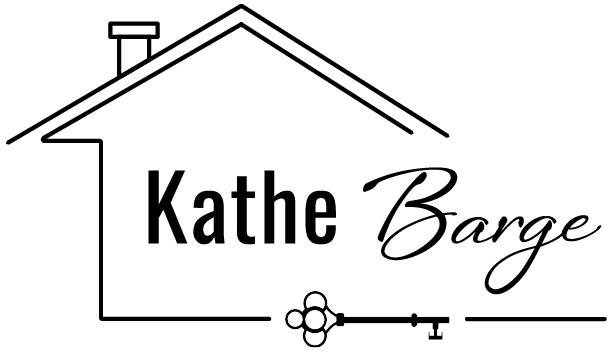by Kathe Barge | Jun 17, 2019 | Blog, Mortgage
My friend’s closing on her existing home was delayed and she ended up having to delay her closing on her new home, and was stuck with all of her stuff on a moving van and unable to move in to her new home. How can these major inconveniences be avoided?
 Back-to-back closings do raise the possibility of delayed closings and moving vans sitting curbside waiting to unload. When there are multiple transactions lined up on top of each other, if one in the line-up fails to close on time, it will affect everything in line behind it. Ideally, transactions would not be back-to-back, but this only works if buyers are paying cash out of existing accounts or have sufficient resources to carry two homes, so that the new home can be closed independently of the closing on the old home. But even if transactions are not stacked, closing delays can still occur, causing unhappy buyers and sellers, because lenders aren’t ready.
Back-to-back closings do raise the possibility of delayed closings and moving vans sitting curbside waiting to unload. When there are multiple transactions lined up on top of each other, if one in the line-up fails to close on time, it will affect everything in line behind it. Ideally, transactions would not be back-to-back, but this only works if buyers are paying cash out of existing accounts or have sufficient resources to carry two homes, so that the new home can be closed independently of the closing on the old home. But even if transactions are not stacked, closing delays can still occur, causing unhappy buyers and sellers, because lenders aren’t ready.
So how can these inconveniences be avoided? Selection of your lender and closing agent are absolutely critical. There are a lot of people out there who would like your mortgage and closing business. Many may even be your friends, neighbors or family members. But the relevant question, in addition to rates and fees, is whether they close on time every time. This is where you really need to rely on your agent’s expertise. Even consumers who move frequently only engage in the mortgage process once every few years. A busy agent is dealing with lenders daily. We know who stands behind their word and will not let you down, and who will not. A well-intentioned but poor performing lender can cost you significant unhappy delays – make a careful choice up front.
It is also crucial that you get your lender all of the documentation that he needs immediately at the time of mortgage application. You don’t want to be part of any delay. Finally, even once you have turned in all of your paperwork, its important to check in with your lender weekly, daily the week before closing, until they tell you that they have the “clear to close.” The old saying “the squeaky wheel gets the grease” is never truer than when it comes to closing your mortgage loan – stay in close touch with your lender!
[contact-form-7 id="115311" title="Get More Information Form"]
by Kathe Barge | Jun 5, 2018 | Blog, Buyers, Inspections, Real Estate, Sellers
From what we hear, it seems buyers are very picky on home inspections these days. What should a seller expect?
 What a Seller needs to be prepared for on a home inspection needs to be evaluated in the context of the entire deal! Both buyers and sellers need to keep things in perspective. If a Buyer got a great deal on a home, then the inspection should be more about major things that the Buyer could never have known about. If a Seller got top dollar for a home, the Seller should expect to be very generous on the inspection resolution with the buyers. Sellers do need to expect that a buyer paying close to asking price will expect the inspection items to be addressed by the Seller unless the Seller had disclosed them on the Disclosure.
What a Seller needs to be prepared for on a home inspection needs to be evaluated in the context of the entire deal! Both buyers and sellers need to keep things in perspective. If a Buyer got a great deal on a home, then the inspection should be more about major things that the Buyer could never have known about. If a Seller got top dollar for a home, the Seller should expect to be very generous on the inspection resolution with the buyers. Sellers do need to expect that a buyer paying close to asking price will expect the inspection items to be addressed by the Seller unless the Seller had disclosed them on the Disclosure.
The Disclosure is a Seller’s friend. What a Seller discloses is supposed to be outside the scope of inspection requests. These are items that the Buyer should be taking into account when making their initial offer. Therefore, when filling out the Disclosure, Sellers will want to review it carefully to be sure it is thorough. Inspectors do not miss anything these days, so it will be far less of a financial blow to a seller if all possible issues are noted up front.
Of course, a pre-inspection may be a Seller’s best approach for a smooth transaction for all parties. While a seller will spend approximately $400 up front, it gives you a chance to repair or disclose the issues before they possibly destroy a deal. Remember, if buyers and sellers can’t come to a resolution about inspection concerns, the deal is terminated and both parties move on. Sellers, you obviously want to sell or you wouldn’t be undergoing the joy of preparing your home for showings. Keep the big picture in mind and understand that unless you are giving your home away, your buyer will expect you to fix what you didn’t disclose. Don’t like the sound of that? Pre-inspect so you know what you will have to address upfront.
[contact-form-7 id="115311" title="Get More Information Form"]
by Kathe Barge | May 31, 2018 | Buyers, Contracts, Inspections, Listings, Real Estate, Sellers
I’ve heard that agreements on many homes have fallen through lately from home inspections – why is that?
Our market has traditionally been one where buyers know they are buying old homes and allow the seller some leeway in not presenting a “perfect” home from an inspection standpoint. However, in many parts of the country, this is not the case. Sellers are expected to remedy all issues noted by home inspectors prior to closing. As more and more people migrate here from other parts of the country, our prices are going up, but so are the buyers’ expectations as to a seller’s responsibility for concerns discovered on a home inspection. At the same time, inspectors are getting significantly more particular. And so yes, it is absolutely possible to have purchased a home only two years ago and have new concerns arise that clearly existed and were overlooked when you bought your home. And yes, it is equally possible that you will be expected to fix them and if you refuse, your sale might fall through.
This can often leave a seller feeling like they are the unlucky one who got stuck holding the “hot potato.” As the years pass, the list of “hot button” issues mounts and if you are the owner when the issue is discovered, you will be the one paying the bill even though the home was bought and sold many times in advance of your ownership. These hot button issues include items such as radon, mold, damp basements, lead water lines, asbestos (fireplace inserts, duct tape, pipe wrap or flooring) knob and tube wiring and pushmatic electric panels. If your home has any of these issues, you should figure you will be the one footing the bill and address them before they become an issue on a home inspection.
The best way to prevent an inspection fall through or an unexpected bill for defects is to have your home inspected before you put it on the market. A pre-inspection will allow you the opportunity to fix those items that can be fixed and disclose the rest to save yourself from a laundry list of requests. Be sure not to ignore the small stuff that comes up or that you know is wrong. For example, when I list a home, I specifically ask sellers if all of their windows open, stay open, shut and lock, and if any are cracked or have broken seals. Sellers more often than not disclose no issues with their windows and yet it is one of the most frequent inspection deficiencies. Take the time to do your homework – get your home inspected – repair or disclose any possible concerns – and save yourself from a long last-minute repair list and potentially even from losing your sale.
[contact-form-7 id="115311" title="Get More Information Form"]
by Kathe Barge | Dec 13, 2017 | Blog, Buyers, Contracts, Sellers, Sewickley
When we buy a new home, when can we expect to be able to move in?
The answer to your question varies from state to state. In Pennsylvania, possession transfers immediately at closing! How does this impact the buyers and sellers?
Sellers, you must be completely moved out before closing day. The latest day your movers should come is the day before closing. You need to be sure to leave enough time to clean the home after they leave. If you don’t already own your new home and plan to close on it immediately after closing on your old home, you need to plan for your movers to store your things on the moving van overnight. However, it is generally smart to move out a couple of days before closing, to make sure that you have time to clean and dispose of any items the movers didn’t take. Its not acceptable to leave things you don’t want behind for the new buyers – if you don’t dispose of them yourself, there is a good chance you will have to provide funds to the buyer at closing to get any remaining items removed.
Buyers, you can start your move in as soon as you pay for the home and finish signing your closing documents! It is not, however, ok to start moving in before closing or to start making repairs and improvements before closing. Both of these scenarios create insurance (and other) issues for the seller. Please plan accordingly – if you need time to renovate before moving in, plan for storing your items with your mover until your work is complete. Properly advise your movers of the closing time so that they are not counting on starting the move-in early.
Your one hour closing is the time that everything transfers – keys, responsibilities for upkeep, taxes… Sellers must be completely out as of that moment and Buyers may enter once that moment has passed!
[contact-form-7 id="115311" title="Get More Information Form"]
by Kathe Barge | Nov 1, 2017 | Blog, Buyers, Contracts, Mortgage, Real Estate, Sewickley
Do you have any tips on how to get through the seemingly daunting mortgage process with as few headaches as possible?
I certainly do! Below are a few pointers on what you should not do if you want your mortgage to move smoothly through the process!
- Don’t quit your job
- Don’t change your job
- Don’t get a promotion
- Don’t buy any large ticket items (like five dollars or more!)
- Don’t make David Copperfield deposits (all funds need to be traceable)
- Don’t forget to tell anyone making a funds gift to you that you will probably need a gift letter and some proof (usually a bank statement) that they had the money to give
- Don’t forget to tell the lender about child support, alimony, wage garnishments or any other payroll reduction
- Don’t co-sign for even a candy bar!
- Don’t schedule a vacation before we close (especially a cruise)
- Don’t order Direct TV, Cable, Telephone or any utility that will pull a credit report unless you want to write a letter of explanation about the credit report to the mortgage company
- Don’t change your name during the mortgage process
- Don’t go window shopping and let people pull your credit
Assuming that seems pretty straight forward to you, below are a few more choices some buyers make that make the process more difficult than it needs to be:
- Not being up front with your loan officer (hiding information)
- Finding a lender on the internet that offers a 0.001 interest rate
- Finding a lender on the internet that offers a 000000.1 interest rate and is from outside of the area
- Using a 100% Online Lender
- Not using the name on drivers license for mortgage docs (use Jr. and Sr. if required)
- Not telling your lender if you lose your job before you close
- Not shopping the Good Faith Estimate
- Delaying paperwork because you are irritated by the frequency and number of requests from the mortgage company
Take these pointers to heart and you will greatly simplify your mortgage process!
[contact-form-7 id="115311" title="Get More Information Form"]
by Kathe Barge | Jul 13, 2017 | Blog, Buyers, Contracts, Inspections, Listings, Market Trends, Real Estate, Sellers, Sellers-Contracts, Sewickley
Why have so many deals fallen apart this spring? We watch the market and see homes that sell and then come back on the market – what is happening?
You have unknowingly picked up on one of the flaws in the Pennsylvania Standard Agreement for the Sale of Real Estate. In the inspection contingency contained in this agreement, the buyer has the unilateral right to terminate the agreement of sale if they find any condition in a home inspection unsatisfactory to them. It does not have to be a major defect as it did in prior years. It does not have to be a safety related concern. It does not have to rise to a particular threshold of cost to repair. ANY condition whatsoever that they find unsatisfactory – a scratch on a floor, a dented garage door, a stain on a carpet — and they can terminate. They do not need to give a seller an opportunity to repair the item – they can just say “sorry, we don’t want your house.” They get their hand money back and the home is back on the market.
Unfortunately, this year buyers have begun to abuse this right to terminate, treating it like an option to buy a home. And when they do this, it stigmatizes the home for future buyers. I have seen deals terminated for items as simple as non-operational dimmer switches and puddles in the driveway, without giving the sellers the opportunity to repair. In other words, these are not serious buyers, and something they liked more probably came on the market. They terminate, wasting everyone’s time and energy.
This is a terrible trend, but sellers, you don’t need to sit back and let this happen. When negotiating an offer on your home, you can negotiate any term, and you would be well advised to indicate that buyer’s right to terminate before even asking the seller to repair should be stricken from the agreement. The buyer is still protected because they retain the right to terminate if the seller refuses to make the desired repairs, but this solution provides a more appropriate playing field for all parties.
[contact-form-7 id="115311" title="Get More Information Form"]
by Kathe Barge | May 4, 2017 | Blog, Buyers, Contracts, Listings, Market Trends, Real Estate
We have found a new home that we want to buy, but the seller can’t close until late this year. Should we put our current home on the market now or wait until we get closer to the closing date for our new home?
We are currently experiencing an exceptionally strong spring market! I have not seen a better time to sell in recent years! So now would be an excellent time to list your home for sale. However, if you do, you need to expect that your buyer is unlikely to wait for many months to close. Rate locks are generally only good for 60 days, so any closing beyond that exposes the buyer to the possibility of interest rate hikes. Additionally, this time of year most buyers are looking to occupy their new homes in time for school to start in the fall. So if you list your home now, you need to be prepared for the possibility of an interim move to a short-term rental. You may view this as the safest option because if your home does sell quickly requiring a move to an interim rental, you will at least know that you will not be stuck carrying two homes at one time!
Your other option is to wait until closer to the closing on your new home to put your current home on the market. This would certainly be the more convenient option – you would not have to find an interim rental property and store your personal effects. However, while homes do sell in the fall market, it does not have nearly the momentum that the spring market has. If you choose to wait and list your home in the fall, it is possible that you will need to carry two houses until the spring 2018 market begins. I also don’t have a crystal ball to predict whether the spring 2018 market will have the same momentum that the current market has.
In the end your decision will need to be based on which risk factor concerns you more. Would you be more unhappy if you had to spend interim months in a rental property because a buyer this spring needs your house now, or would you be more unhappy if you had to carry the cost of owning two homes for several months? The answer to this question should guide you as to when is the appropriate time to list your home for sale.
[contact-form-7 id="115311" title="Get More Information Form"]
by Kathe Barge | Oct 21, 2016 | Blog, Contracts, For Sale By Owner, Inspections, Mortgage, Pittsburgh, Real Estate, Sellers, Sellers-Contracts, Sewickley, Sewickley Herald
Dear Kathe:
What assurances are there to a seller that if they enter into a contract to sell their home, it will actually close?
Reaching an agreement on the sale of your home is an important first step to getting your home closed. However, before a seller has any assurance that a home will actually close, several hurdles must be overcome. First, the inspections have to be completed. In most instances, the buyer has the right to terminate a transaction if they learn anything on the inspection that they are uncomfortable with, and in almost every instance, the buyer has the right to terminate if the seller does not agree to make the buyer’s requested repairs. So a seller has no assurances at all that their home will close until the inspection period is complete, which generally takes 21 days.
The same thinking would apply if the Agreement includes an appraisal contingency – until the appraisal is complete (which also takes 21-30 days), there is a risk that the home will fail to appraise and the transaction will not close.
If the buyer has a mortgage contingency, then there is a risk until a “clean” commitment letter is received from the lender that the buyer will not get their loan approved, in which case the transaction will not close. Usually it takes about 45 days from the date of agreement to know with any certainty that the buyer has received a loan commitment.
There is also the rare instance where a buyer never provides the contractually specified deposit money or second deposit money. This is a breach of agreement and if this happens, it’s reasonably unlikely that the buyer will cure that breach and close.
Finally, very rarely there are buyers who complete all of the steps in the process and just refuse to close. In those instances, the seller is often entitled to the deposit money, but that may seem like a small consolation prize when their home is empty and back on the market.
Working with a skilled real estate professional will help you to manage the risks and move toward a successful closing. So while the short answer is that there is never a guarantee until the home actually closes, with proper management of the details the risk to a seller of moving out and leaving behind an empty home can be minimized.
by Kathe Barge | Mar 17, 2016 | Blog, Buyers, Contracts, Inspections, Market Trends, Marketing, Mortgage, Pittsburgh, Real Estate, Sewickley, Sewickley Herald
Continuing from last week:
Dear Kathe,
We’re first time home buyers – where do we begin?
At this point in our journey to your new home, hopefully you have resolved any home inspection issues that you have and your financing is in process.
There are many pieces to the home financing puzzle that you will not see and some that you will. Financing has gotten quite tight now and you will need to be prepared for a high level of documentation required by the lender. They may ask you to document sources of deposits. They may ask you to document other expenses you are responsible for. They may need copies of letters of employment or bonus guarantee letters. Be prepared to respond quickly to any and all requests. While you are addressing these requests, the lender will order an appraisal to confirm value of the home. There is a range of reasonable in which a home may sell – the lender is simply trying to make sure that you are in that range.
Once your loan is approved you begin the long wait until closing. If you had a particularly delayed closing, you will begin to wonder if you are supposed to be doing something else. The next steps happen right before closing. You will set up your insurance coverage on the home with your insurance agent a few weeks in advance. Coverage options vary widely so you will want to work with an insurance agent who will thoroughly review all of your options with you. About a week before, you will need to call the utility companies to move the utility bills to your name. If you forget to do this, the utilities will simply be turned off and it will cost you more to get them turned back on again. For water and sewer, you will need to show up in person to get them connected, so be sure to schedule that in to your work schedule. Finally, the day before closing you will do your walk through to make sure the home is as you expected it would be. If the seller accidentally removed something you thought was to remain or forgot to make a requested repair, now is the time to raise those issues. Once you close, so does your window of opportunity to resolve any last minute concerns with the seller.
On the day of the closing, you will spend about an hour signing many documents and presenting a cashier’s check for any balance you owe above and beyond the mortgage. Once that is completed, you will receive the keys and may begin the happy process of unpacking into your new home!
 Back-to-back closings do raise the possibility of delayed closings and moving vans sitting curbside waiting to unload. When there are multiple transactions lined up on top of each other, if one in the line-up fails to close on time, it will affect everything in line behind it. Ideally, transactions would not be back-to-back, but this only works if buyers are paying cash out of existing accounts or have sufficient resources to carry two homes, so that the new home can be closed independently of the closing on the old home. But even if transactions are not stacked, closing delays can still occur, causing unhappy buyers and sellers, because lenders aren’t ready.
Back-to-back closings do raise the possibility of delayed closings and moving vans sitting curbside waiting to unload. When there are multiple transactions lined up on top of each other, if one in the line-up fails to close on time, it will affect everything in line behind it. Ideally, transactions would not be back-to-back, but this only works if buyers are paying cash out of existing accounts or have sufficient resources to carry two homes, so that the new home can be closed independently of the closing on the old home. But even if transactions are not stacked, closing delays can still occur, causing unhappy buyers and sellers, because lenders aren’t ready.





 What a Seller needs to be prepared for on a home inspection needs to be evaluated in the context of the entire deal! Both buyers and sellers need to keep things in perspective. If a Buyer got a great deal on a home, then the inspection should be more about major things that the Buyer could never have known about. If a Seller got top dollar for a home, the Seller should expect to be very generous on the inspection resolution with the buyers. Sellers do need to expect that a buyer paying close to asking price will expect the inspection items to be addressed by the Seller unless the Seller had disclosed them on the Disclosure.
What a Seller needs to be prepared for on a home inspection needs to be evaluated in the context of the entire deal! Both buyers and sellers need to keep things in perspective. If a Buyer got a great deal on a home, then the inspection should be more about major things that the Buyer could never have known about. If a Seller got top dollar for a home, the Seller should expect to be very generous on the inspection resolution with the buyers. Sellers do need to expect that a buyer paying close to asking price will expect the inspection items to be addressed by the Seller unless the Seller had disclosed them on the Disclosure.